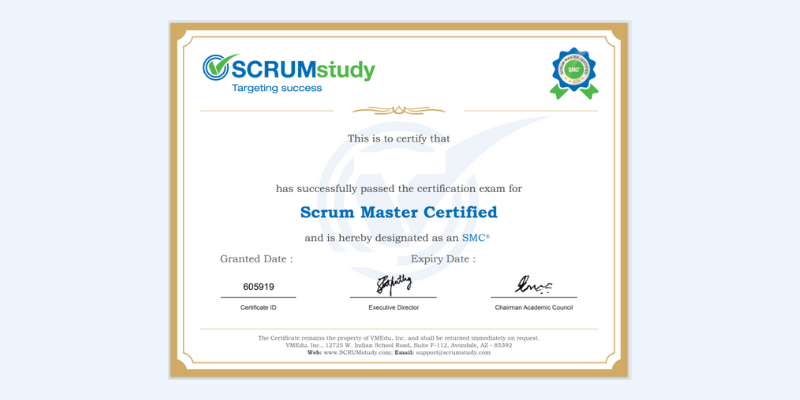The Role of Certification in Becoming a Better Scrum Master
In today’s fast-paced world of Agile project management, Scrum Masters play a crucial role in helping teams adopt Agile practices and ensure that projects are delivered effectively. Certification can significantly enhance a Scrum Master’s skills and career prospects, providing both formal education and practical tools to excel in the role.
Why Certification Matters for Scrum Masters
Becoming a certified Scrum Master is more than just adding a credential to your resume. The process involves a deep understanding of Agile principles, Scrum methodology, and how to facilitate high-performing teams. Here are some key reasons why certification is important:
1. Structured Knowledge of Scrum Practices
A certified Scrum Master undergoes formal training that covers the core concepts of Scrum, including roles, ceremonies, and artifacts. This structured learning ensures that Scrum Masters have a solid understanding of the framework, making them more capable of guiding teams through the implementation of Scrum.
2. Improved Leadership and Facilitation Skills
Scrum Masters are responsible for leading their teams, removing impediments, and ensuring that Scrum practices are followed. Certifications such as the Certified ScrumMaster (CSM) program from Scrum Alliance or Professional Scrum Master (PSM) from Scrum.org equip Scrum Masters with essential leadership and facilitation skills. These courses provide practical tools for managing team dynamics, fostering collaboration, and improving communication across teams and stakeholders.
3. Enhanced Problem-Solving and Conflict Resolution
Certification programs also focus on developing skills in problem-solving, conflict resolution, and decision-making. Scrum Masters frequently deal with issues such as team conflict, scope creep, or lack of engagement. Scrum Master Certified are trained to handle these challenges more effectively, ensuring smoother project execution and better outcomes.
4. Credibility and Trust
Having a Scrum certification adds credibility to your profile, both within your organization and with clients or stakeholders. It shows that you have committed time and effort to master Scrum practices and can be trusted to lead Agile teams. Certification demonstrates a level of professionalism that can build confidence in your abilities as a Scrum Master.
5. Increased Career Opportunities
As more organizations adopt Agile methodologies, the demand for certified Scrum Masters continues to rise. Many companies require Scrum Master certification as a baseline qualification, making it a key factor in career advancement. Whether you are looking to move up within your current organization or transition to a new company, certification can make you a more competitive candidate in the job market.
Popular Scrum Master Certifications
1. Scrum Master Certified (SMC)

Offered by SCRUMstudy, the Scrum Master Certified is one of the most recognized certifications for Scrum Masters. The course focuses on Scrum fundamentals, team dynamics, and practical Scrum implementation. It is particularly beneficial for individuals new to Scrum or those looking to formalize their experience.
2. Professional Scrum Master (PSM)
Scrum.org’s PSM certification is another widely respected program. This certification offers different levels (PSM I, II, and III), catering to both beginners and experienced professionals. The PSM is known for its rigorous exams, which require a deeper understanding of Scrum and its application in real-world scenarios.
3. Scrum Master Accredited Certification (SMAC)
The SMAC certification, offered by the International Scrum Institute, provides an alternative path for Scrum Masters. It focuses on practical application and includes an online exam that assesses real-world Scrum knowledge.
The Benefits of Certification Beyond the Basics
Beyond technical skills, certification also fosters continuous learning and professional growth. As Scrum and Agile methodologies evolve, keeping up with the latest trends, tools, and frameworks is crucial. Many certification bodies, such as Scrum Alliance and Scrum.org, offer ongoing professional development resources and community access. This helps Scrum Masters stay ahead of industry changes and improve their overall effectiveness.
Conclusion
In summary, Scrum Master certifications are a valuable investment in a professional’s career. They provide structured knowledge, practical tools, and leadership skills that improve team dynamics and project outcomes. For Scrum Masters aiming to improve their performance, increase their job prospects, or gain credibility within their organization, certification offers a clear path to mastering the art of Scrum. Whether you're new to the role or looking to advance your skills, certification can provide the foundation for long-term success in the Agile world.
